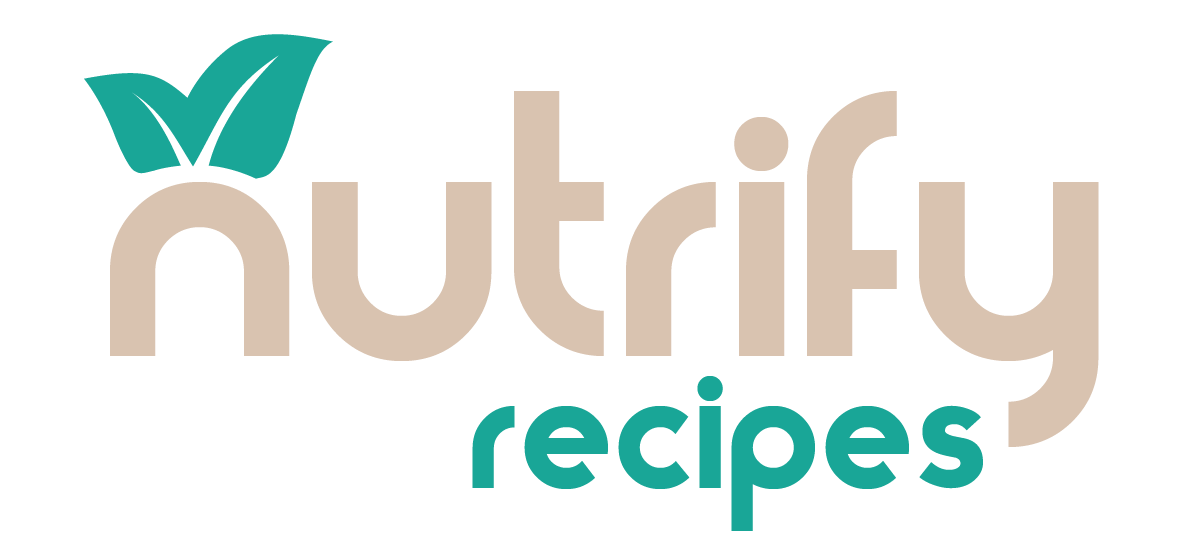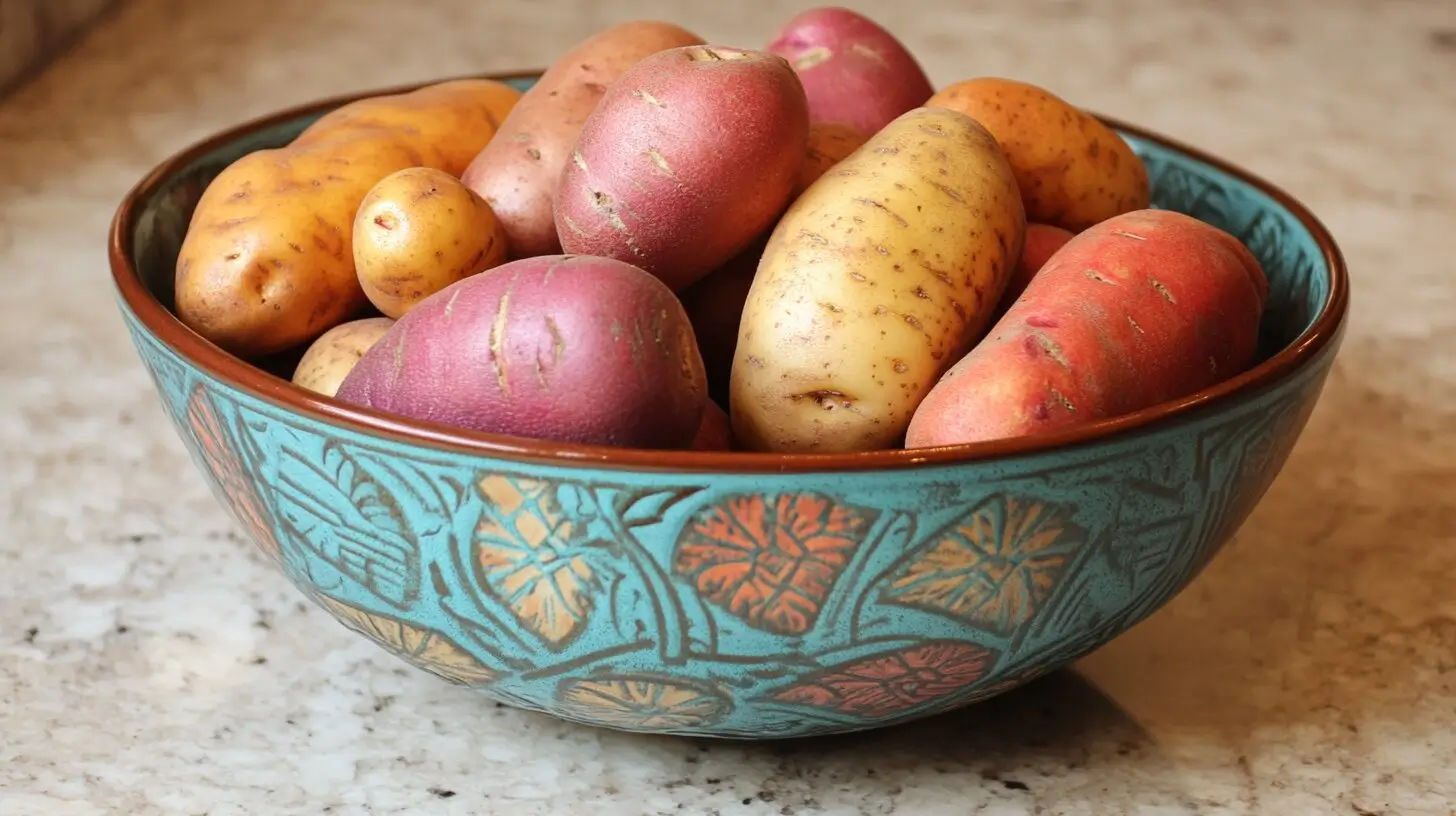Potatoes are one of the most versatile and beloved foods worldwide. But for those managing a gluten-free lifestyle, a common question arises: are potatoes safe to eat? The simple answer is yes, potatoes are naturally gluten-free. However, it’s essential to consider how they’re prepared and served to avoid accidental gluten contamination. If you’re looking for inspiration to incorporate gluten-free foods into your morning routine, check out these Easy & Irresistible Gluten And Dairy-Free Breakfast Ideas.
In this article, we’ll explore whether potatoes are naturally gluten-free, discuss situations where they may not be safe, and provide tips to keep your potato dishes completely gluten-free. Whether you’re a seasoned gluten-free eater or just starting, this guide will answer your questions and help you enjoy potatoes without worry.
Table of contents
What is Gluten?
Gluten is a protein found in certain grains, including wheat, barley, and rye. It gives bread its chewy texture and helps baked goods maintain their shape. While gluten is harmless to many, it can cause serious issues for people with celiac disease, gluten sensitivity, or a wheat allergy.
Understanding Gluten Sensitivity and Celiac Disease
For individuals with gluten-related disorders, consuming even trace amounts of gluten can trigger symptoms like abdominal pain, bloating, fatigue, and more. Celiac disease, in particular, is an autoimmune condition where gluten damages the small intestine, leading to nutrient malabsorption and long-term health problems.
Due to these conditions, many people adopt a gluten-free diet, carefully scrutinizing food to avoid potential gluten contamination. Knowing which foods are naturally free from gluten, such as potatoes, can help simplify meal planning.
Are Potatoes Naturally Gluten-Free?
Yes, potatoes are naturally gluten-free! They belong to the nightshade family and contain no gluten. Whether you prefer russets, Yukon golds, or sweet potatoes, all types of potatoes are safe for a gluten-free diet.
Potatoes are a great choice for those avoiding gluten. They have a starchy texture and mild flavor that work well in many dishes, like mashed potatoes or fries.
The Nutritional Value of Potatoes
Potatoes are not just gluten-free—they are healthy too! A medium potato is rich in nutrients, including:
- Vitamin C: Helps your immune system stay strong.
- Potassium: Supports healthy blood pressure.
- Vitamin B6: Boosts brain function.
- Fiber: Aids digestion and keeps you full longer.
They are also low in fat, making them a good choice for a balanced diet.
Forms of Potatoes That Might Contain Gluten
While potatoes are naturally gluten-free, certain potato dishes and products can contain gluten due to added ingredients or contamination. It’s important to know where gluten might sneak in to avoid accidental exposure.
Processed Potato Products
Not all potato-based foods are safe for a gluten-free diet. Here are some common examples:
- French Fries: Though made from potatoes, fries can be coated in batter or fried in oil shared with gluten-containing foods.
- Instant Mashed Potatoes: Some brands add wheat flour or other gluten-containing thickeners. Always check the label.
- Potato Chips: Flavored chips may have seasonings that include gluten. Plain or unseasoned varieties are often safer.
Cross-Contamination Risks
Cross-contamination can occur during food preparation or in manufacturing facilities. For instance:
- Potatoes prepared on shared cutting boards or fried in the same oil as breaded items can become contaminated.
- Packaged potato products may be processed in factories that also handle wheat, barley, or rye.
To avoid these risks, it’s essential to read labels, ask questions at restaurants, and prepare your potatoes carefully at home.
How to Ensure Your Potatoes Are Gluten-Free
Keeping potatoes gluten-free is easy with a little attention to preparation and product labels. By following these tips, you can enjoy potatoes without worrying about gluten contamination.
Reading Labels and Ingredients
Always check labels on packaged potato products. Here’s what to look for:
- Hidden Gluten Additives: Ingredients like wheat flour, malt, or modified food starch (unless specified as gluten-free).
- Certified Gluten-Free Labels: These labels indicate the product meets strict gluten-free standards.
- Flavorings and Seasonings: Some seasonings may contain gluten, especially in flavored chips or pre-seasoned fries.
Safe Preparation Methods
Cooking potatoes at home is one of the best ways to avoid gluten. Follow these steps to keep your food safe:
- Use Dedicated Utensils: Avoid cross-contact by using cutting boards, knives, and pots reserved for gluten-free cooking.
- Fry with Care: If frying, use fresh oil that hasn’t been used for breaded or gluten-containing items.
- Wash Thoroughly: Rinse your potatoes well to remove any dirt or residues from other foods.
- Avoid Pre-Made Mixes: Skip boxed or pre-made mashed potatoes unless they’re labeled gluten-free.
These precautions ensure your potatoes remain a reliable staple for gluten-free meals.
Best Gluten-Free Potato Recipes
Potatoes are a versatile and satisfying ingredient in gluten-free cooking. They can be prepared in countless ways to suit any meal or occasion. Here are some of the best gluten-free potato recipes that are simple to make and full of flavor.
1. Classic Mashed Potatoes
Ingredients:
- 4 large potatoes (Yukon Gold or Russet)
- 1/4 cup butter
- 1/2 cup milk or cream
- Salt and pepper to taste
Instructions:
- Peel and chop the potatoes into chunks.
- Boil the potatoes in salted water until they are fork-tender.
- Drain and mash them using a potato masher or hand mixer.
- Add butter and milk gradually, mashing until creamy.
- Season with salt and pepper. For extra flavor, mix in garlic, chives, or shredded cheese.
Why It’s Gluten-Free:
When made with fresh potatoes and basic ingredients, this dish is naturally gluten-free.
2. Gluten-Free Potato Salad
Ingredients:
- 5 medium potatoes
- 1/2 cup mayonnaise (ensure gluten-free)
- 2 tbsp mustard (gluten-free)
- 1/2 cup diced celery
- 1/4 cup chopped onions
- Salt, pepper, and paprika to taste
Instructions:
- Boil the potatoes until tender. Let them cool, then peel and cut into bite-sized pieces.
- In a large bowl, combine mayonnaise, mustard, celery, and onions.
- Gently fold in the potatoes and mix until well coated.
- Add salt, pepper, and paprika for flavor. Chill before serving.
Why It’s Gluten-Free:
Using gluten-free mayonnaise and mustard ensures this dish is safe and delicious.
3. Loaded Baked Potatoes
Ingredients:
- 4 large potatoes
- 1/2 cup shredded cheese
- 1/4 cup sour cream
- 1/4 cup cooked, crumbled bacon
- 2 tbsp chopped green onions
Instructions:
- Wash and dry the potatoes. Prick them with a fork and bake at 400°F (200°C) for 45–60 minutes, or until tender.
- Cut a slit in the top of each potato and fluff the insides with a fork.
- Top with shredded cheese, sour cream, bacon, and green onions.
Why It’s Gluten-Free:
These baked potatoes are made with fresh ingredients and naturally gluten-free toppings.
4. Crispy Oven-Roasted Potatoes
Ingredients:
- 5 medium potatoes
- 3 tbsp olive oil
- 1 tsp garlic powder
- 1 tsp paprika
- Salt and pepper to taste
Instructions:
- Preheat your oven to 425°F (220°C).
- Wash and cut the potatoes into wedges or cubes.
- Toss them in a bowl with olive oil, garlic powder, paprika, salt, and pepper.
- Spread on a baking sheet and roast for 25–30 minutes, turning once, until crispy and golden.
Why It’s Gluten-Free:
This dish uses simple, whole ingredients and no gluten-containing additives.
5. Gluten-Free Potato Pancakes (Latkes)
Ingredients:
- 4 medium potatoes
- 1 small onion
- 1/4 cup gluten-free flour
- 2 large eggs
- Salt and pepper to taste
- Oil for frying
Instructions:
- Grate the potatoes and onion, then squeeze out excess liquid using a clean kitchen towel.
- In a bowl, mix the grated potatoes and onion with gluten-free flour, eggs, salt, and pepper.
- Heat oil in a skillet over medium heat. Drop spoonfuls of the mixture into the pan and flatten with a spatula.
- Fry until golden brown on each side. Drain on paper towels before serving.
Why It’s Gluten-Free:
By using gluten-free flour, this traditional recipe becomes safe for gluten-sensitive eaters.
These recipes highlight the versatility of potatoes in gluten-free cooking. Whether you prefer creamy, crispy, or savory dishes, these ideas will keep your meals exciting and satisfying.
Other Gluten-Free Alternatives to Potatoes
While potatoes are a gluten-free staple, there are other options for those looking to diversify their meals. These alternatives are also starchy, versatile, and naturally gluten-free.
Sweet Potatoes
Sweet potatoes are a nutritious and flavorful alternative to regular potatoes. They are rich in:
- Vitamin A: Supports vision and immune health.
- Fiber: Aids digestion and keeps you feeling full.
- Antioxidants: Protects cells from damage.
You can prepare sweet potatoes in the same way as regular potatoes. They work well in baked dishes, mashed sides, or even as fries.
Root Vegetables Like Turnips and Parsnips
Turnips and parsnips are excellent substitutes for potatoes. They have unique flavors and can be roasted, mashed, or added to soups.
- Turnips: Lower in calories and slightly peppery in taste.
- Parsnips: Sweeter than potatoes, with a nutty undertone.
Gluten-Free Grains as Potato Substitutes
If you’re looking for something different, try gluten-free grains like quinoa, rice, or millet. These can replace potatoes in many dishes, offering similar starchy satisfaction while adding variety to your diet.
These alternatives ensure you have plenty of gluten-free options to keep your meals exciting and healthy.
Frequently Asked Questions About Potatoes and Gluten
To clear up any lingering doubts, here are answers to some of the most common questions about potatoes and their gluten-free status.
Can French Fries Contain Gluten?
Yes, French fries can sometimes contain gluten. While potatoes themselves are gluten-free, French fries might be coated with batter or fried in oil shared with gluten-containing foods. To be safe, always check how the fries are prepared and whether the oil is used exclusively for gluten-free items.
Is Potato Starch Gluten-Free?
Potato starch is naturally gluten-free, as it’s derived solely from potatoes. However, cross-contamination can occur during processing. Look for certified gluten-free labels to ensure it’s safe for your diet.
Can Gluten Hide in Potato Dishes?
Yes, gluten can be present in potato dishes through added ingredients. For instance, instant mashed potatoes may have gluten-containing thickeners, and potato chips may include flavorings that contain gluten. Always check labels or prepare your potato dishes at home to be certain.
Are Sweet Potatoes Gluten-Free Too?
Absolutely! Sweet potatoes are naturally gluten-free, just like regular potatoes. They can be used as an alternative in a variety of gluten-free recipes.
Do I Need to Worry About Cross-Contamination at Restaurants?
Yes, cross-contamination is a risk, especially with fried or prepared potato dishes. Ask questions about the cooking process and shared equipment to ensure your meal is gluten-free.
Are Baked Potatoes Always Gluten-Free?
Baked potatoes are usually gluten-free when prepared simply. However, some toppings, like gravies or sauces, may contain gluten. Stick to fresh ingredients and gluten-free-certified toppings.
Conclusion
Potatoes are naturally gluten-free, making them a staple for those avoiding gluten. Ensure their preparation aligns with gluten-free practices to fully enjoy their nutritional benefits without concern. Whether baked, mashed, or fried, potatoes can complement various gluten-free meals, such as those outlined in this guide to healthy cheesecake recipes.
Potatoes are a safe and delicious choice for those avoiding gluten. However, it’s important to be mindful of how they’re prepared and served to avoid gluten contamination. By choosing naturally gluten-free ingredients and checking labels, you can enjoy potatoes in a variety of tasty and safe ways!
For a fun and cheesy twist on potatoes, try Cheesy Mashed Potato Puffs a crispy, gluten-free snack that’s perfect for any occasion. Happy cooking! 🎉
Final Thoughts
Potatoes are a safe and versatile choice for anyone on a gluten-free diet. Just be mindful of how they are prepared, and enjoy them in a variety of ways.
Want more delicious gluten-free recipes? Try these:
👉 Perfectly Roasted Yukon Gold Potatoes
👉 Cheesy Mashed Potato Puffs
👉 Gluten and Dairy-Free Breakfast Ideas
Enjoy your gluten-free potato dishes with confidence! 🚀

